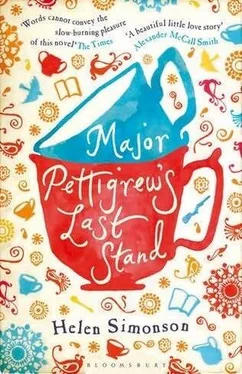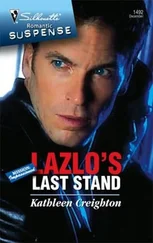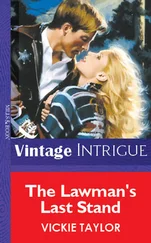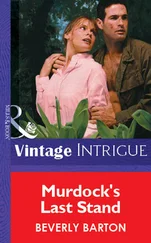“She was dying,” said Roger. “She begged you to marry again and you swore you wouldn’t. Personally, I was mad that we wasted so much valuable time on deathbed promises both of you knew were untenable.”
“Your mother was the most generous of women,” the Major said. “She meant what she said.” They were silent for a moment and the Major wondered whether Roger was also smelling again the carbolic and the roses on the bedside table and seeing the greenish light of the hospital room and Nancy’s face, grown as thin and beautiful as a painted medieval saint, with only her eyes still burning with life. He had struggled in those last hours, as had she, to find words that were not the merest of platitudes. Words had failed him then. In the awful face of death, which seemed so near and yet so impossible, he had choked on speech as if his mouth were full of dry hay. Poems and quotations, which he had remembered using to soothe others on those useless condolence notes and in the occasional eulogy, seemed specious and an exercise of his own vanity. He could only squeeze his wife’s brittle hand while the useless pleadings of Dylan Thomas, “Do not go gentle into that good night…,” beat in his head like a drum.
“Are you all right, Dad? I didn’t mean to be harsh,” said Roger, bringing him blinking to his senses. He focused his eyes and braced one hand on the back of Roger’s couch.
“Your mother is gone, Roger,” the Major said. “Your uncle Bertie is gone. I don’t think I should waste any more time.”
“Maybe you’re right, Dad,” said Roger. He seemed to think for a moment, which the Major found unusual, and then he came around the couch and held out his hand. “Look, I wish you luck with your lady friend,” he said. “Now, how about you wish me luck at Ferguson’s shoot? You know how much this Enclave deal means to me.”
“I appreciate the gesture,” said the Major, shaking hands. “It means a lot to me. I do wish you luck, son. I’ll do whatever I can to support you up there.”
“I was hoping you’d say that,” said Roger. “Since I’m going up early, there may be some wildfowling, Gertrude says. So how about letting me take up the Churchills?”
As the Major drove away from Roger’s cottage, leaving his gun box with his delighted son, he had a sinking feeling that he had been manipulated once again. In his mind images played in a tiresome loop. Roger crouched in a duck boat in the foggy dawn. Roger rising to fire at a soaring flock of mallards. Roger toppling backward over the metal bench into the scuppers. Roger dropping a Churchill, with the smallest of splashes, into the fathomless waters of the loch.

Would Don Quixote or Sir Galahad have been able to maintain his chivalrous ardor for the romantic quest, wondered the Major, if he had been forced to crawl bumper-to-bumper through an endless landscape of traffic cones, belching lorries, and sterile motorway service areas? He looked to their shining examples as he endured the ugly concrete girdle of London’s M25, reminding himself that at least it kept the heaving flabby suburbs from spilling out and suffocating what was left of the countryside. He tried not to lose courage as the south fell away and the motorways became one speeding blur of giant lorries, all racing north as if they had a thousand miles to cover and donated organs in the back instead of cargoes of cold tea, frozen chickens, and appliances. In the fluorescent lighting and faint bleach smell of an anonymous service area somewhere in the Midlands, where he was just another gray-haired old man with a plastic tray, his doubts threatened to overwhelm him.
He hadn’t let anyone know he was coming. What if Mrs. Ali wasn’t even home? The siren call of Scotland with the promised castle banquet and shooting in the heather almost turned his head, but as he put his thumb too vigorously through the cover of a little plastic tub and sprayed his jacket with milk, it came to him that it was precisely Mrs. Ali who made the world a little less anonymous. She made him a little less anonymous. He gulped his tea-not difficult, as it was little better than tepid-and hurried out to get back on the road.
He felt self-conscious cruising the streets looking for the right road and house number from the letter Grace had given him. Mrs. Ali’s neat handwriting was crumpled under his fingers on the steering wheel as he checked the thin page again and again against the streets outside. The people on the pavements were now mostly dark-skinned women with children and babies in pushchairs. Some wore the headscarf arrangement of observant Muslims. Some sported the short puffy jackets and gold earrings fashionable among the universal young. He thought he saw a few heads turn to watch him as he passed a knot of young men huddled around the raised bonnet of a car. He overshot the house but was too embarrassed to drive around the block again. Instead, he slipped into an open parking space.
The long street was anchored at one end by a couple of large Victorian mansions, now crumbling and forlorn. At the other end a brick wall indicated the perimeter of a redbrick housing estate filled with six-story blocks of flats and narrow terraced houses. Metal window frames and blank front doors in one of three colors suggested the limits, artistic and budgetary, of the local housing authority’s imagination. Between these representatives of the high and low points of the industrial age was the long row of semi-detached houses built for a prewar middle class of rising aspirations: three bedrooms, two parlors, and indoor plumbing, all serviced by a “daily” maid.
Some of the semis had been heavily improved since their heyday and were all but unrecognizable beneath their vinyl double-glazed windows, boxy side extensions, and glassed-in front doors. The few that retained their original wooden window frames also had peeling paint and a variety of haphazard window coverings that suggested bedsits. Worst of all, to the Major’s eyes, many of the houses, affluent or not, had cut down flowering front yards and paved them over to park multiple cars up against the windows.
The Ali family’s house was one of the more prosperous. It retained half a garden with a gravel area on which stood a small two-seater sports car. The elegant effect of the car and the new white-painted windows was overshadowed by the neighboring house, which bore leaping dolphins on its gateposts and purple shutters around dark wood window frames. The Major was just allowing himself a small sniff of disapproval at such obviously foreign excess when a white woman with streaky hair and a pink fur jacket over green jeans tripped out of the front door in her black patent boots and drove away in a small green car with an “Ibiza Lover” bumper sticker.
Mentally apologizing to the rest of the neighborhood, the Major marched up to the heavy oak door of the Ali house and stood on the doorstep, staring at the ordinary brass circle of the door knocker. He remembered standing with Mrs. Ali outside the golf club, both of them tense with anticipation. He was sure, now, that life could never live up to its anticipatory moments and he became quite certain that today would be a disaster. He looked behind him, thinking perhaps he should make a run for his car. A young man passed slowly on a bicycle, chewing gum and staring at him. The Major nodded and, feeling too embarrassed to shuffle away, turned back to knock at the door.
A young pregnant woman answered. She wore fashionably tousled hair tucked loosely into a scarf and a soft black maternity dress over black-and-white-patterned leggings. Her brown face was attractive but blunt and bore more than a passing resemblance to Abdul Wahid’s.
Читать дальше













